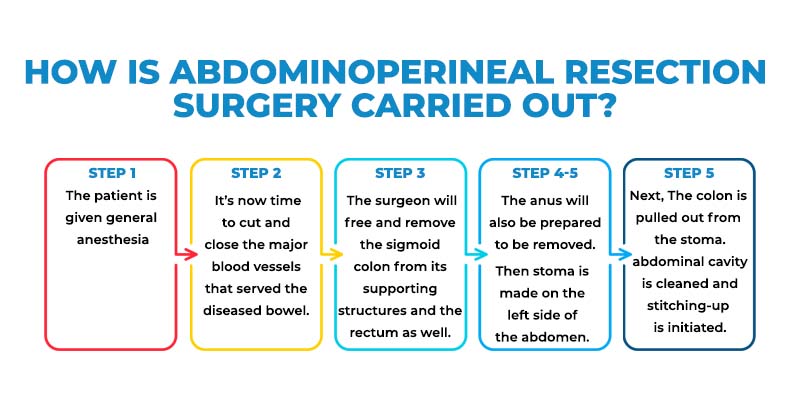-
 Call Now:
8010 552 552
7595 838 844
Call Now:
8010 552 552
7595 838 844
-
 Email Me:
[email protected]
Email Me:
[email protected]
The doctor may have given you some disturbing news, that you will require rectal cancer surgery. You may be wondering what this surgery is and what it entails. In today’s blog, we will give you a brief note about abdominoperineal resection and how you can prepare yourself both mentally and physically for this major procedure.
This is an operation in which the surgeon removes the anus, the rectum, and the sigmoid colon. The surgeon does this by making cuts or incisions in the abdomen. Since the rectum is removed, the surgeon has to create another passageway for the waste to exit the body. This new opening from which waste can pass through the body is known as a stoma and it is attached to a pouch on the body where the waste collects.
Here are the general steps of rectal cancer surgery. If you have opted for laparoscopic or general open surgery the procedure will be more or less the same.
Step 1: The patient is given general anesthesia.
Step 2: It’s now time to cut and close the major blood vessels that served the diseased bowel.
Step 3: The surgeon will free and remove the sigmoid colon from its supporting structures and the rectum as well.
Step 4: The anus will also be prepared to be removed.
Step 5: Next, it’s time to make the stoma. Usually, it is formed on the left side of the abdomen. The surgeon will pull out the colon from the stoma, clean the abdominal cavity and begin to stitch up.

Post-surgery, you will have to stay in hospital for a week at least (this is the minimum period of time). Right after surgery, you will be fitted with a pouch to carry the waste.
It will take a couple of days for the digestive system to become fully functional. At first, you will be put on a liquid diet, and if all goes well, you can resume eating solid foods again.
In rare cases, a patient can develop a perineal hernia. Also, there can be bleeding, perineal wound problems, and perineal sinus. Refer to your surgeon to understand the complications and what you can do with the same. Full recovery takes place after 6 weeks.

Returning to normal life after rectal cancer surgery can be quite tough for a person. The person is dealing with multiple issues. Hence, it is necessary to talk to your healthcare provider about the concerns or fears you may have. Join a support group so that you don’t have to go through the problem alone.